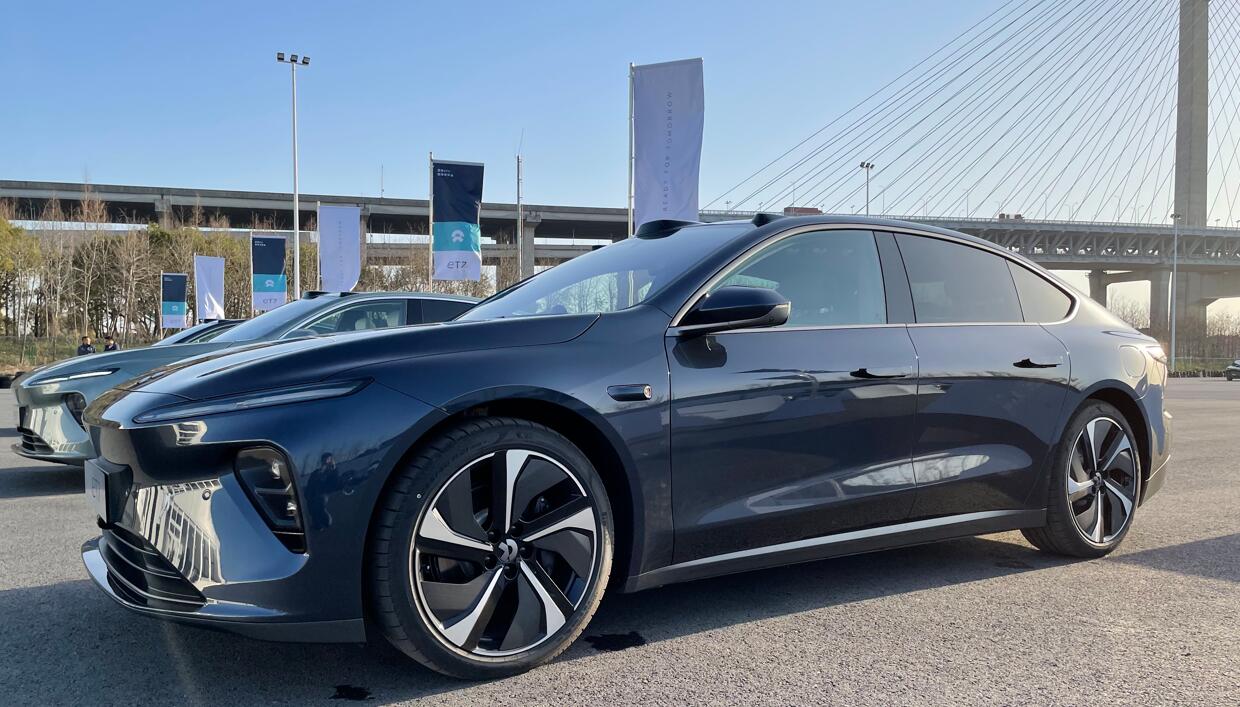In terms of penetration, new registrations of NEVs in Shanghai contributed 53 percent of all new vehicle registrations in 2022.
(Image credit: CnEVPost)
As one of the most supportive cities for the new energy vehicle (NEV) industry in China, Shanghai is about to see a new milestone.
By the end of 2022, the ownership of NEVs in Shanghai reached 945,000, close to the 1 million milestone, data released by the city's transport authorities on Sunday showed.
Of these, 327,000 were added in 2022, a figure 68,000, or 26.25 percent, more than in 2021.
Shanghai's NEV fleet accounts for 19.81 percent of the total vehicle fleet of 4.77 million, an increase of 310,000 units, or 48.84 percent, compared to 2021, after deducting the note sales.
When motor vehicles other than ordinary cars are taken into account, Shanghai has a motor vehicle fleet of 5.37 million.
By the end of 2022, Shanghai had 521,000 battery electric vehicles (BEVs), accounting for 55.13 percent of all NEVs.
In terms of penetration, new registrations of NEVs in Shanghai contributed 53 percent of all new vehicle registrations of 617,000 in 2022.
As a comparison, in 2019, the number of newly registered NEVs in Shanghai was 69,000.
The number of drivers licensed in Shanghai by the end of 2022 was 9.3 million, according to the data.
Shanghai's transport authorities did not specify, but the city has the highest number of NEVs in China.
Previously available data showed that Shanghai had 635,000 NEVs by the end of 2021, ranking it as the number one city in China.
Shenzhen and Beijing ranked second and third with 544,000 and 507,000 NEVs respectively by the end of 2021.
Beijing aims to see NEV ownership reach 2 million by 2025, according to an economic development plan released by the city last year.
By the end of 2022, China had 13.1 million NEVs, accounting for 4.1 percent of its total vehicle fleet of 319 million, according to data released by the Traffic Administration Bureau of the Ministry of Public Security of China on January 11.
Of these, 10.45 million were BEVs, accounting for 79.78 percent of all NEV ownership.
This means that by the end of 2022, Shanghai contributed 7 percent of China's NEV holdings and 5 percent of BEV holdings.
Before 2023, Shanghai offered free license plates to all consumers who purchase NEVs, including BEVs as well as plug-in hybrid vehicles (PHEVs).
For consumers wishing to register a conventional internal combustion engine vehicle (ICE) in Shanghai, they will need to obtain a plate in advance through a bidding process, with the successful candidate paying over RMB 90,000 for the plate.
From 2023, Shanghai no longer offers free plates for PHEVs, and the benefit is limited to consumers who purchase BEVs.
As a comparison, in Beijing, for consumers purchasing ICE vehicles, PHEVs and BEVs, they will all need to obtain a plate in a lottery system. Although BEV plates are the easiest to obtain, people still usually have to wait many years.
In addition, the Shanghai government announced yesterday the renewal of an RMB 10,000 ($1,500) subsidy to encourage residents to replace their vehicles with BEVs.
